Marcel van Marrewijk's Blog, page 44
June 11, 2019
Nice to Meet: Benita Matofska, the Founder of The People Who Share Charity and the Author of Generation Share
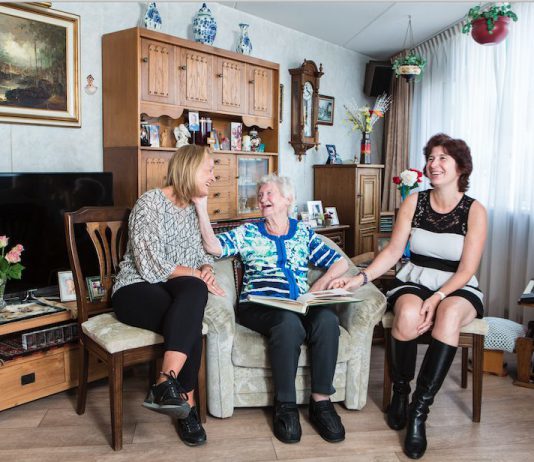 Can you please tell a bit who you are and what is your background.
Can you please tell a bit who you are and what is your background.Hello! I am Benita Matofska, I am a global speaker and change maker. I am currently based in Brighton, United Kingdom. On June 17th, I am publishing my book, Generation Share. My job involves finding positive solutions to our global problems, such as climate change, poverty, hunger, inequality and isolation. 10 years ago, I was working in the charity sector following 20 years in broadcasting. I recognized that the world was becoming an increasingly unequal place and I wanted to do something to address that. The world I want to create is a society built around the sharing of human and physical resources. Following a life-changing experience where I shared a platform with Desmond Tutu at the One Young World Congress in 2010, I was inspired to create The People Who Share. TPWS is a charity that helps to unleash everyone’s sharing potential. I’m known as the ‘Chief Sharer’, I’m a global leader in the sharing economy.
How did you come up with the idea of The People Who Share? What’s the goal of the community?
I’ve always been really interested in the social impact of sharing. The sharing economy is a term that is widely misunderstood. When we think about the sharing economy, we should think about everybody. We want it to be about people like us, but oftentimes people are looking at very specific businesses, which are often backed by either multinational corporations or by venture capital. However, the sharing economy is in fact a much more far reaching term. Essentially, what it refers to is a system to live by where you care for people and planet share available resources in any way that you can.
I’ve done a lot of work to define the sharing economy. Over the last three years I’ve been working on a project called Generation Share. It is a book that documents the incredibly inspiring stories of change-makers worldwide who are creating social impact via the sharing economy by sharing resources in lots of different ways and creating all kinds of social value. It will bring over 200 stories – the world’s largest collection of changemaker stories. It is going to be published on the 17th of June for Global Sharing Week, the largest annual celebration of Sharing and the Sharing Economy.
The People Who Share began as a small non-profit. And still, we have remained to be entirely run by volunteers. As a charity, we’re very much about unleashing everyone’s potential to share. And we believe passionately that the sharing economy is for everyone. Through the sharing of resources and the accessing of shared resources we can build a better society and a better world and certainly better economy. We look at three kinds of values: social, environmental and economic – often environmental and social value is hidden and we very much want to unleash that. Though our planetary resources may be finite, we all have unlimited potential to share and collaborate and if we can unleash that unlimited sharing potential, then there’s no end to what we can achieve. Essentially, The People Who Share is a charity for people or businesses who care about the world and want to make the best future.
As a charity, we find ways to engage everyone’s sharing potential. We do 4 things. We promote, educate, organise and share. We promote the sharing economy through our campaigns such as our flagship campaign, Global Sharing Week. Global Sharing Week is the largest annual celebration of sharing. It takes place this year from the 16th of June to the 22nd of June. We work with over 300 partner organizations worldwide and have a global reach of over 100 million people. Last year we had 456 events in 247 cities in 39 countries on all continents. And we know this year is going to be the biggest still. So that’s what we do in terms of promoting this whole idea of sharing resources. We also educate, so we publish reports on how the sharing economy is creating social impact and changing lives. Thanks to these reports, it is evident for the first time how the sharing economy is having a positive social impact and affects people’s everyday lives. We also organise, by putting on events, such as meetups, community events and workshops, we run the Global Sharing Economy Network Meetup and finally we share. We run Share Tables at our events, collecting needed resources such as food or clothing for a variety of charities and people in need and we host the Share Guide, a free online resource providing people with access to over 10,000 platforms, aps and projects where they can share resources.
What is the best part of your job?
Through my job I get to connect and meet with people from all over the world and influence people who work in many different sectors. As an international public speaker and changemaker, my role is very much about helping people and helping businesses to change lives. I have the opportunity to change millions of lives by working with different organizations. The businesses I work with are what I call ‘changemaker companies’, which embed social and environmental value in what they do. It is certainly no longer the case that businesses can only create economic value. They now need to be creating social, environmental and economic value.
Through my book Generation Share I have interviewed over 200 change-makers from around the world. We have extraordinary stories from the two women who’ve set up a life-saving human milk bank that is saving the lives of premature babies to a slum-based school for girls in India called Sakhi School for Girls Education that was set up by change-maker Aarti Naik. It was set up in the slums originally in her family’s slum home, sharing skills and food with those in need. As a part of this program, the girls receive education in English, maths, science and financial skills and also receive a hot meal, which is often the only hot meal of the day for many of them.
The book brings these incredible inspiring stories of hope, to public attention as it’s clear that the world needs some hope right now. Generation Share is very much about focusing on positivity and sharing these incredible stories of transformation. We need to demonstrate that the Sharing Economy is saving millions of lives around the world. It is a global movement and through the book we want to inspire more people to get involved.
The book itself is produced from waste materials. Each copy will fund and educate a girl in the slums, supporting Aarti Naik’s Sakhi School for Girls. In addition, each copy supports the planting of a tree through the Eden poverty and deforestation project. So it’s creating and sharing good in every possible respect.
You’ve mentioned that you’re a changemaker. What does being a changemaker mean for you?
A change-maker is somebody who is at the forefront of creating a better world, changing lives, helping people to see the magic in the world, to recognize that we live in a world now where we need to share and collaborate. If we can unleash that sharing potential there’s no end to what we can achieve. That’s really what being a changemaker is about – it’s about unleashing that capacity to share. The reality is that we have enough food to feed everyone in the world. We have enough food to be able to end world hunger. The problem has been that we have a shortage of sharing. So what we need to be doing is to unleash the unlimited capacity to share and if we can do that, we can build a world that benefits everyone.
Could you give a piece of advice to people in S2M ecosystem who want to start sharing but don’t know how?
As I mentioned, everybody has the capacity to share and collaborate. As a starting point I would say to people, when you wake up in the morning, ask yourself this question: What do I have that I could share today? That could be as simple as smiling at a neighbor or making them a cup of tea. These simple things don’t necessarily have to involve technology.
However, if people are interested in how they can share online, we have a Share Guide that can be easily accessed. Also, social media can be used. We’re very active on social media. People can follow the hashtag “#sharingeconomy” and #generationshare and find out all sorts of ways in which they can access these resources. Perhaps you could share some of your time, perhaps you could go volunteer with a local charity. Volunteering / sharing time is something that everybody can do. We all have the ability to share.
To share is to be human. We wouldn’t have survived as a society without our ability to share and collaborate. We know that in times of famine and in times of war for example people survived by coming together and helping each other. Therefore, sharing is also part of our survival.
It’s something that everybody can do no matter where you are in the world. I mentioned Aarti in the slums of Mumbai with no future ahead of her. The girls there are married very young and many are sold into prostitution or sex trafficked. She looked around her and she realized if she wanted to change her future, her will alone wasn’t enough, she also wanted to share that dream.
She had nothing she lived (and still lives and works) in the slums, living in one room slum home with nine family members. She realized that in order to have a future, she would first need to get an education. She knew that she had to teach herself to speak Hindi and English because in her community people speak a local dialect called Marathi.
She did this by finding and reading resources. Then she wanted to share that with others. She saw that this was the ladder, the way out of this life of poverty and prostitution and no future for girls. So she sets up this school originally from her one room slum house. Her mother was incredible — supporting her through the whole journey, she allowed her to invite 5 girls so she could start teaching them what she had learned herself. Now Aarti has a small building (a school) in the slums that she rents.
My point is, if Aarti could do that with no resources, in the most adverse conditions, then all of us can share. `All of us can share with somebody, all of us can help a neighbor, all of us can take what we no longer need and share it with others / a charity shop or a school.
There are so many different ways in which we can share.
Social Media campaign from The People Who Share
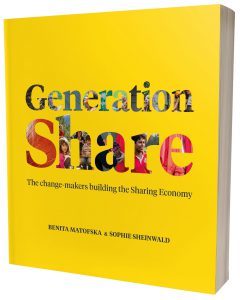
We have a social media campaign that we’re launching and we would love the Seats2meet community to get involved in that. The idea is, if you have a group of people who post the same message at the same time. Then you are able to get to trend and you will able to reach 100 times more people than you would ordinarily. So it’s all about the power of the crowd to do this. Therefore, we are we all going to do one of these, called a pack.
Essentially, people sign up through this link to be part of this campaign. Then the campaign goes live on the day of publication of the Generation Share book, which is the 17th of June. Our goal is to be able to share that hope with more people and to help change and save more lives through the sharing of this book and the hope that it brings of building a world where we share resources in any way that we can.
Special credit to the book photographer and co-creator, Sophie Sheinwald.
The post Nice to Meet: Benita Matofska, the Founder of The People Who Share Charity and the Author of Generation Share appeared first on Seats2meet.
June 8, 2019
Women In Nepal
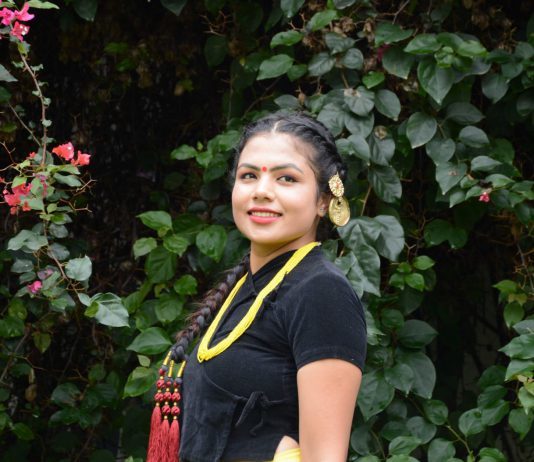
With a bright, catching smile, Rousie dances with other women to the music, which comes from her phone. She has dyed dark red strands in her hair, is wearing jeans, t-shirt, sneakers. Sometimes she goes to the cinema with her friends. Her 20th birthday, she has celebrated in a small, local restaurant from 4 p.m. to 8 p.m. Then she had to be back home. It doesn’t suit a woman to be out after dark. In her village, at the foot of the Himalayas, she would not have had the chance of an apprenticeship not to mention academic studies. But by providing a home to the foreigners, she’s able to live a better life in Kathmandu.
In Nepal, men mean no harm if they see the duties of a woman in that sector. They just have never seen it another way. For generations, this image of women rules especially the rural parts of Nepal. Most of the women in Nepal do not study as much as men. They get married and care for her husband, children, and home. They officially have the same rights as men. Underage marriage is forbidden officially. The same with forced marriage. Nevertheless, the old traditions are deep-rooted in peoples’ minds. Nepal is an extraordinarily beautiful country, which varies from impressive mountains to rank jungle areas. Hindu temples alternate with Buddhist stupas and people have unity and peace apart from cultural diversity. Traditional rural life even shows up in the metropolis of Kathmandu. People spend much time outside, they meet for chatting, laughing, celebrating.
Over the last years, a new medium has found its way into Nepal, which we would often consider annoying: the smartphone. Almost every young adult has one and for people in Nepal, it is a blessing. On the internet, they see, that it is not self-evident to be in an arranged marriage. They read blogs of women who study, who work, who are even unmarried till thirty. This is what gives energy to women in Nepal, who anyway never lost their pride, back their self-consciousness to fight for an independent, self-determined life; for a life, where married women not only are responsible for washing and cooking but have equal rights to work and earn money.
Rousie, her mother and their friends meet on a hill above Kathmandu for a picnic. They listen to Nepalese pop music, dance lively, laugh and drink red wine. The latter is frowned upon, but the women don’t care. They show an unbelievable power. They are intelligent, eager to know, fighting, even if they are not (yet) allowed to show that at home. But their mind, their strong headed nature is contagious, it also awakens women, who so far have submitted themselves to their faith, have accepted it as given by nature. Rousie’s aunt at fifties now has seen the chance of the evening classes she visits. She tries hard to learn reading and writing. She stopped seeing her duties exclusively in cleaning the house and cooking for her family.
Rousie wishes to lead another life than her aunt’s. She also wishes for a life different from her mother’s, who got married very early to an unknown man and who had to quit school on demand of her parents in law, but who silently fights against the traditional role of women. She hopes, her daughter’s life will be different. Rousie studies, a first step in the direction of a self-determined life. Nevertheless, 80 percent of Nepal’s female students will not be able to have a job after graduating. Because they have to get married. After most of the marriages, their parents in law decides on them.
After university, it is Rousie’s big dream to be able to work, with which she can contribute to improving social structures in Nepal. She would like to marry a man whom she loves, who accepts and respects her as the person she is: a strong, intelligent woman, who wants to go her own way. Yet there are many obstacles along that way. But she’s definitely not the person who’s scared of obstacles. Her mother would have loved to continue going to school and learn a profession but due to the social circumstances, she remained a housewife. Her daughter’s got the chance to study. Even if she won’t make all her dreams come true against society’s resistance, Rousie at least puts aside some obstacles for the next generations.
Times they are a-changing, even in Nepal.
Katharina Sollfrank,
Passau, Germany.
The post Women In Nepal appeared first on Seats2meet.
June 7, 2019
Enter Network presents: Digital Nomadism
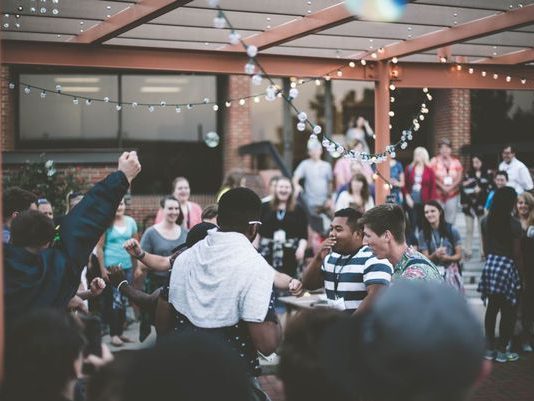
It’s almost the second tuesday of this month, which means, time for Tech Tuesday! This edition of the Tech Tuesday we’ll shake things up a little bit. Connecting the regular Tech Tuesday team (Permanent Beta) with the Enter Network. Because that’s how we like to do things at Seats2meet! Before we head to the details of the Tech Tuesday x Enter Network meetup, more about this mysterious Enter Network.
Because yes, you could say it all started at Seats2meet. At least that is what Jochem, co-owner of Infloat and the Enter Network, told me. Before he started Infloat (and later, Enter Network) he worked as a freelancer in online marketing. Seats2meet was his first ‘office’ outside of his own home when he started freelancing in 2016. In this interview below, Jochem will explain the concept of Enter Network, the meetups, connection with S2M and his vision.
Could you tell me a bit more about you and the Enter Network?
“Certainly. Enter Network is a community for entrepreneurs and aspiring entrepreneurs, currently from in and around Utrecht. We started Enter Network with a meetup (then called the Utrecht Entrepreneurship Meetup) to meet other entrepreneurs and learn something in the process. I currently co-own a boutique consultancy in blockchain applications called Infloat; as a side project, my colleague from Infloat and I have been running Enter Network since we started half a year ago.”
Why do you organise these meetups?
“For several years I’ve been interested in entrepreneurship. In other cities (notably Amsterdam) there were a variety of events you could go to if you wanted to learn more about startups and meeting like-minded people — but in Utrecht this wasn’t really the case. There are some great initiatives (from UtrechtInc, StartupUtrecht) that host meetups/events, but I felt entrepreneurs in Utrecht would benefit from another initiative that took a different perspective.”
Why did you choose Seats2meet as location for the meetup?
“I think Seats2Meet is a great concept and an excellent place to host our Enter Network meetup. We try to keep our meetup open to anyone who wants to join, because we believe in the power of community and helping one another; this is something that fits very well with the S2M principles.”
What is the best serendipity-moment you’ve had so far?
“When we just started with Infloat, we had our office at the Garage at UtrechtInc. One day I was working there, and I suddenly saw a former classmate of mine from high school walk in. I hadn’t seen him for at least 8 years, and it turned out he now was also running his own company. Later on, I invited him to join our meetups, and he’s now one of the core members of the Enter Network community!”
With Enter Network, you’re organizing meetups for entrepreneurs. What does networking mean to you and why is it so important?
“For me, networking with others has benefits now and simultaneously is an investment for later. It’s great to talk to people who are facing the same challenges as you are; whether it relates to sales, startup funding, or a topic like building a local brand. But networking is also an investment; once you actually face a particular challenge you want solved (e.g. when you’re looking to gain additional customers), it’s great to start with asking advice from people you already know. So by networking, you basically expand your the amount of people you can ask help from, and in this way ensure that you can solve future challenges/problems faster.”
The theme of this upcoming meetup (11th of June) will be “Digital Nomads”. A digital nomad is someone who is working remotely, preferably in a sunny place such as Thailand or Bali. Many people (specifically freelancers) enjoy working in this way because they’re able to make a good salary while enjoying a holiday-like way of living. For this meetup, we’ve invited to speakers who both have been and are digital nomads. These digital nomads are used to working with people (clients and colleagues) across borders and timezones. The evening will end with some time for drinks, and of course, networking.
Excited to join? Let’s us, and (even more important) others know that you’ll be there. You can find the event on the Seats2meet agenda, Meetup.com and on Facebook. See you Tuesday, the 11th of June!
The post Enter Network presents: Digital Nomadism appeared first on Seats2meet.
June 5, 2019
Waarom stijgt de vraag naar betaalde scriptiebegeleiders?

3 Juni publiceerde Trouw het artikel “bezorgdheid over de groeiende populariteit van betaalde scriptiebegeleiders” (Harmsen, 2019). De toename in de vraag naar scriptiebegeleiding is een signaal, maar wat ligt er nu ten grondslag aan de toename in de vraag van studenten naar betaalde scriptiebegeleiding?
Scriptiebegeleiding valt onder de branche schaduwonderwijs. De inspectie van onderwijs heeft het concept schaduwonderwijs in 2015 gedefinieerd als onderwijs dat aanvullend is op het regulier onderwijs en waarvoor ouders of studenten zelf betalen. In 2017 hebben de Geus en Bisschop (2017) geprobeerd de marktomgeving van het schaduwonderwijs in kaart te brengen. Op basis van de aanbodzijde, KvK registraties 2015 en de bijbehorende omzet, is vastgesteld dat de marktomvang in 2015 €74 miljoen bedroeg. Echter op basis van de vraagzijde, schooljaar 2016/2017, is vastgesteld dat de omzet in deze branche tussen de €185 en €286 miljoen bedroeg. Volgens het CBS had deze markt in Nederland in 2015 een marktomvang van €189 miljoen (CBS, 2016). Met name het hoger onderwijs blijkt binnen het schaduwonderwijs een groeimarkt te zijn. Zo investeerde een Nederlandse investeringsmaatschappij in 2019 een miljoen euro in Pallas Athena. Een bedrijf dat in het hele land bijles en examentrainingen aanbiedt voor universitaire studenten (AOB, 2019). De onderwijsinspectie heeft vastgesteld dat met name leerlingen van hoogopgeleide ouders schaduwonderwijs volgen. De Geus en Bisschop (2017) geven aan dat hierdoor de kansen voor deze studenten worden vergroot ten opzichte van studenten die geen schaduwonderwijs volgen.
Dat met name de vraag naar schaduwonderwijs groeit onder studenten binnen het hoger onderwijs heeft verschillende redenen. Ten eerste wordt het hoger onderwijs ook wel een massaproduct genoemd waarbij studenten worden beoordeeld op studiesucces en diplomarendement. Aandacht voor de individuele student is nihil. Studenten hebben verschillende motieven om gebruik te maken van schaduwonderwijs (AOB, 2019) (Onderwijsinspectie, 2019):
Remedie: inlopen op de opgelopen achterstanden.
Competitie: studenten willen zo hoog mogelijke prestaties behalen om hun maatschappelijke positie te verbeteren.
Compensatie: de opleiding schiet tekort in het bieden van maatwerk en het begeleiden van de student.
Uitbesteding ouderlijke taken: thuis heeft de student te veel afleiding of ouders kunnen de begeleiding zelf niet geven.
Ten tweede willen beleidsmakers bij de overheid en bij de Hbo-instellingen de onderzoekscapaciteit van het Hbo verhogen maar in de praktijk blijkt dit lastig te zijn. Zo wil de overheid het Hbo-onderwijs sterker verbinden aan praktijkgericht onderzoek en stelt zij als doel dat in 2020 100% van de docenten een master-diploma behaald moet hebben (Tewinkel & Juist, 2012). Uit onderzoek van Griffioen (2018) blijkt echter dat in slechts 17% van de openstaande vacatures voor Hbo docenten van verschillende hogescholen naar onderzoekvaardigheden wordt vraagt (Griffioen, 2018). De nadruk in de vacatures ligt op didactische vaardigheden. Uit het onderzoek van Griffioen (2018) blijkt daarnaast dat docenten die didactische vaardigheden goed beheersen minder competent zijn in onderzoekvaardigheden (Griffioen, 2018). Hbo docenten dienen een master-opleiding te behalen maar de vertaling van onderzoeksmethodieken die zij leren tijdens deze master-opleiding worden (nog) niet vertaald naar de colleges die gegeven worden in het Hbo-onderwijs. Het gevolg hiervan is dat Hbo studenten een praktijkgericht onderzoek moeten uitvoeren (de scriptie) maar dat een groot gedeelte van deze studenten de benodigde onderzoekvaardigheden onvoldoende beheerst.
Daarnaast zijn er macro omgevingsfactoren die van invloed zijn op de groeiende vraag naar scriptiebegeleiding. Zo was in 2017 30,6% van de Nederlandse bevolking tussen de 15 en 75 jaar oud hoogopgeleid (Onderwijs in cijfers, 2017).
In het schooljaar 2017/2018 volgenden 732.804 studenten een Hbo of Wo studie in Nederland. Dit is 7,3% hoger dan in het schooljaar 2015/2016 (CBS, 2019). Dit zijn hoge aantallen en om deze studenten te kunnen voorzien in passend onderwijs zijn investeringen nodig. Echter de rijksbijdrage per student in 2018 is met 25% afgenomen ten opzichte van 2000 (dit zijn geïndexeerde cijfers). Dit heeft tot gevolg dat de prestaties van de wetenschappers en docenten hieronder lijden en dit heeft natuurlijk een impact op studenten (VSNU, 2018).
Een opvallende ontwikkelingen gezien de wijzigingen in de financiële ondersteuning van studenten door de overheid. Zo hebben er in 2015 veranderingen plaatsgevonden in de manier waarop de overheid studenten financieel ondersteunt bij het behalen van de studie. Studenten ontvingen tot 2015 een basisbeurs die vastgesteld werd op het inkomen van de ouders en de woonsituatie van de student. Wanneer de student binnen 10 jaar de opleiding afrondde werd deze beurs omgezet in een gift (Duo, 2019). Na 2015 is dit veranderd in verschillende leningen. Zo kan de student een aanvullende beurs afsluiten wanneer het inkomen van de ouders laag is. Deze beurs wordt omgezet in een gift als de student binnen 5 jaar afstudeert. Daarnaast hebben studenten de mogelijkheid om een lening of rentedragend collegekrediet af te sluiten. Deze leningen moet de student terugbetalen (Duo, 2019). Opvallend is dan ook het artikel van de NOS op 3 juni waarin VVD-senator Bruijn wordt geciteerd. De senator geeft aan dat de VVD voor het kabinetsplan is om de rente op de studieleningen te verhogen omdat het kabinet extra geld aan onderwijs geeft. Zoals de NOS citeert: “De regering eet dat geld niet op, maar geeft het terug. De opbrengst gebruikt het kabinet immers om te investeren en lasten te verlichten zonder de staatsschuld te laten oplopen” (NOS, 2019). Ook geeft de minister van onderwijs Ingrid van Engelshoven aan: “het leenstelsel levert een hoop geld op dat we weer investeren in de kwaliteit van het onderwijs en dat is hard nodig” (Engelshoven, 2019). Dit lijken discutabele uitspraken gezien dat uit de cijfers van de VSNU (2018) blijkt dat in 2018 de rijksbijdrage per student 25% lager was dan in 2000 terwijl in het jaar 2000 geen sprake was van een leenstelsel.
Harmens (2019) beschrijft in haar artikel in Trouw alternatieve om scriptiebegeleiding door particulieren scriptiebureaus tegen te gaan zoals een eigen redigeerdienst bij de Vrije Universiteit (VU) in Amsterdam. De Universiteit heeft meer grip op hoe de begeleiding gegeven wordt maar de student betaalt nog steeds ongeveer 50 euro per uur waardoor de tweedeling tussen studenten blijft bestaan.
Meer info: https://afstudeerwijzer.nl/2019/06/03/ontwikkelingen-betaalde-scriptiebegeleiding/
The post Waarom stijgt de vraag naar betaalde scriptiebegeleiders? appeared first on Seats2meet.
Zeg ‘NEE!’ samen met Roos Wouters tegen verplichte arbeidsongeschiktheidsverzekering voor ZZP’ers!
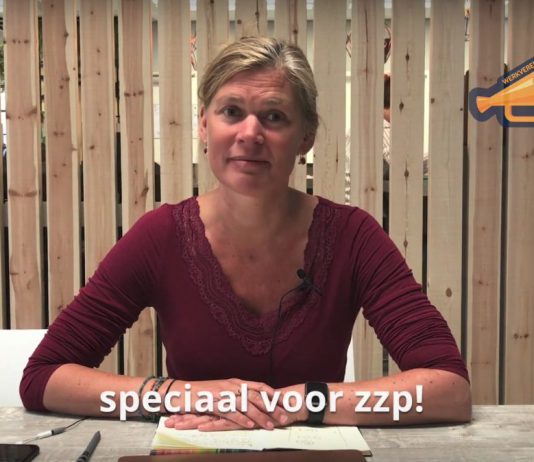 Nee tegen verplichte arbeidsongeschiktheidsverzekering voor ZZP
Nee tegen verplichte arbeidsongeschiktheidsverzekering voor ZZPWij zeggen nee tegen een verplichte arbeidsongeschiktheidsverzekering speciaal voor zzp’ers. In plaats daarvan bepleiten wij een fundamentele herziening van het sociale stelsel. Zodat alle werkenden de zekerheden krijgen die passen bij hun leven, werk, en de ontwikkelingen die zich daarin voordoen.
Zeg “NEE“! Wij hebben jouw stem nodig!
Roos Wouters, aanjager Werkverenigingtegen.
The post Zeg ‘NEE!’ samen met Roos Wouters tegen verplichte arbeidsongeschiktheidsverzekering voor ZZP’ers! appeared first on Seats2meet.
June 4, 2019
Nice2Meet: Anneke Rotenburg, Duurzaamste Hovenier
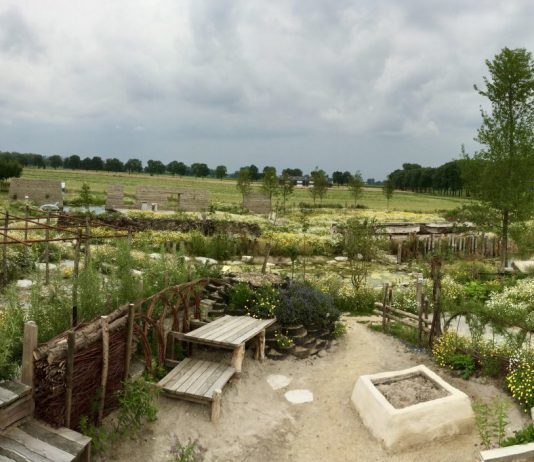
Even voorstellen: ik ben Anneke Rodenburg en sinds afgelopen jaar Duurzaamste hovenier 2018. Ik ben ruim 15 jaar lid van Wilde Weelde, een Vereniging van enthousiaste bedrijven, door heel Nederland, die milieubewust werken aan een natuurrijke omgeving, vanuit een ecologische visie. Wij zijn een netwerk van hoveniers, kwekers, ontwerpers, boomverzorgers, adviseurs en leveranciers van verantwoorde tuinmaterialen.
Vandaag reisde ik per trein voor een overleg met collega’s van Deventer naar Utrecht en belandde daar heel toepasselijk in de kas van Seats2meet bij Hoog Catharijne. Een kas, dat klinkt groen, maar behalve de kas om onze vergadertafel, was er alleen wat kunstgroen aanwezig in de vorm van een nepvaren en een nepklimop, die zich meer als klimaf gedroeg. Ja, het uitzicht was groen, een prachtige plataan met een enorm eksternest!
Met mijn collega’s probeerde ik vandaag te bedenken hoe we als Wilde Weelde beter bij gemeentelijke en provinciale projecten betrokken kunnen worden. Wilde Weelde is al zo’n 20 jaar duurzaam bezig met klimaatadaptatie, bevordering van biodiversiteit, ecologisch groenbeheer, bloemweiden, inheemse beplanting en recycling. We hebben veel kennis in huis. Regelmatig zien we gemiste kansen; zijn we te klein, te bescheiden, te goedkoop of weten we te weinig wat er speelt?
Tijdens de laatste Floriade hebben we ons wel goed op de kaart gezet en in De Tuinen van Appeltern ligt een prachtig groot en duurzaam ingericht voorbeeldterrein. Beiden zijn projecten waarbij we onze krachten gebundeld hebben en als kleine organisatie iets groots hebben neergezet! Bijzondere samenwerkingsprocessen met enthousiaste betrokken mensen dat is de kracht van Wilde Weelde!
Nog even afrekenen bij Seats2meet, wordt ineens een eyeopener…. ook hier liggen kansen. Er is een prachtig digitaal ecosysteem, waar samenwerkingsverbanden uit kunnen voortkomen, uitwisseling van sociaal kapitaal plaatsvindt en interessevelden gedeeld kunnen worden. Vanuit het digitale ecosysteem van Seats2meet, zaaien wij graag mee aan het verbeteren van het enige echte ecosysteem en het versterken van de biodiversiteit, zetten we graag onze expertise in voor klimaatadaptatie.
Vanuit het digitale ecosysteem van Seats 2 meet kunnen we ook voor klimaatverandering zorgen binnen en buiten de kas. Mensen voelen zich beter en blijven langer zitten wanneer het uitzicht groen is, vogels zingen en vlinders en bijen van bloem tot bloem vliegen. Vergaderen wordt prettiger met biologische planten, een prachtige houten boomstamvergadertafel en een geurend boeket wilde bloemen, natuurlijk en onbespoten. Wij zaaien echter het liefste buiten verder aan klimaatbestendige steden, buurtgroen, parken, openbaar groen en bermen, groene speelplekken, pluktuinen, bedrijfstuinen, en tuinen van zorginstellingen. En wel samen met opdrachtgevers, gebruikers, bewoners, kinderen en betrokken collega’s, want zo wordt 1 en 1 vaak 3, 4, 5 of 10! Van ons mag Seats2meet nog vernieuwender, groener én de kas uit, naar buiten!
The post Nice2Meet: Anneke Rotenburg, Duurzaamste Hovenier appeared first on Seats2meet.
Nice 2 Meet: Anneke Rotenburg, Duurzaamste Hovenier

Even voorstellen: ik ben Anneke Rodenburg en sinds afgelopen jaar Duurzaamste hovenier 2018. Ik ben ruim 15 jaar lid van Wilde Weelde, een Vereniging van enthousiaste bedrijven, door heel Nederland, die milieubewust werken aan een natuurrijke omgeving, vanuit een ecologische visie. Wij zijn een netwerk van hoveniers, kwekers, ontwerpers, boomverzorgers, adviseurs en leveranciers van verantwoorde tuinmaterialen.
Vandaag reisde ik per trein voor een overleg met collega’s van Deventer naar Utrecht en belandde daar heel toepasselijk in de kas van Seats2meet bij Hoog Catharijne. Een kas, dat klinkt groen, maar behalve de kas om onze vergadertafel, was er alleen wat kunstgroen aanwezig in de vorm van een nepvaren en een nepklimop, die zich meer als klimaf gedroeg. Ja, het uitzicht was groen, een prachtige plataan met een enorm eksternest!
Met mijn collega’s probeerde ik vandaag te bedenken hoe we als Wilde Weelde beter bij gemeentelijke en provinciale projecten betrokken kunnen worden. Wilde Weelde is al zo’n 20 jaar duurzaam bezig met klimaatadaptatie, bevordering van biodiversiteit, ecologisch groenbeheer, bloemweiden, inheemse beplanting en recycling. We hebben veel kennis in huis. Regelmatig zien we gemiste kansen; zijn we te klein, te bescheiden, te goedkoop of weten we te weinig wat er speelt?
Tijdens de laatste Floriade hebben we ons wel goed op de kaart gezet en in De Tuinen van Appeltern ligt een prachtig groot en duurzaam ingericht voorbeeldterrein. Beiden zijn projecten waarbij we onze krachten gebundeld hebben en als kleine organisatie iets groots hebben neergezet! Bijzondere samenwerkingsprocessen met enthousiaste betrokken mensen dat is de kracht van Wilde Weelde!
Nog even afrekenen bij Seats2meet, wordt ineens een eyeopener…. ook hier liggen kansen. Er is een prachtig digitaal ecosysteem, waar samenwerkingsverbanden uit kunnen voortkomen, uitwisseling van sociaal kapitaal plaatsvindt en interessevelden gedeeld kunnen worden. Vanuit het digitale ecosysteem van Seats2meet, zaaien wij graag mee aan het verbeteren van het enige echte ecosysteem en het versterken van de biodiversiteit, zetten we graag onze expertise in voor klimaatadaptatie.
Vanuit het digitale ecosysteem van Seats 2 meet kunnen we ook voor klimaatverandering zorgen binnen en buiten de kas. Mensen voelen zich beter en blijven langer zitten wanneer het uitzicht groen is, vogels zingen en vlinders en bijen van bloem tot bloem vliegen. Vergaderen wordt prettiger met biologische planten, een prachtige houten boomstamvergadertafel en een geurend boeket wilde bloemen, natuurlijk en onbespoten. Wij zaaien echter het liefste buiten verder aan klimaatbestendige steden, buurtgroen, parken, openbaar groen en bermen, groene speelplekken, pluktuinen, bedrijfstuinen, en tuinen van zorginstellingen. En wel samen met opdrachtgevers, gebruikers, bewoners, kinderen en betrokken collega’s, want zo wordt 1 en 1 vaak 3, 4, 5 of 10! Van ons mag Seats2meet nog vernieuwender, groener én de kas uit, naar buiten!
The post Nice 2 Meet: Anneke Rotenburg, Duurzaamste Hovenier appeared first on Seats2meet.
June 3, 2019
Amsterdam, June 19: Here2Start Fest – The Launch of International Entrepreneurship Network
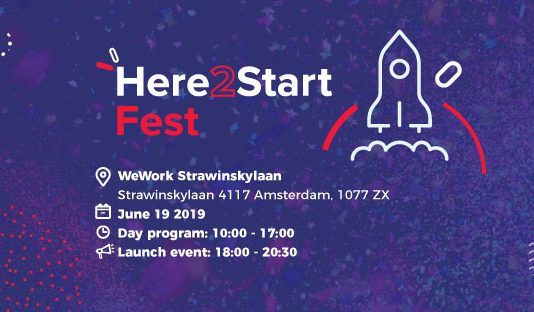
H2S Fest is dedicated to all international entrepreneurs looking to get their business started in the Netherlands. The first edition of our event invites future and current business owners to learn and network around fundamental aspects related to entrepreneurship such as startup visa, Dutch taxation, business planning, ideation workshops and more. The event consists of a Day and Evening program specially designed by international entrepreneurs.
Day Program – Here2Start Fest
Current and future international entrepreneurs are welcome to join simultaneous sessions hosted by Experts and International Entrepreneurs between 10:00 until 17:00. Feel free to choose your preferred topics delivered via 1-1 consultancy sessions, workshops and presentations and brainstorming and ideation rooms.
1-1 Consultancy sessions: Startup Visa Application Q&A, Dutch Taxes, Company Registration, Business Coaching, Online Marketing, Financial Planning.
Workshops: Business Model Canvas, Your future MVP, How to Pitch like a Pro, How to Build your Brand, Lean Market Validation, Your Business Vision Box, Life balance of an entrepreneur.
Presentations: Startup Visa Checklist, The Dutch Startup Ecosystem, Taxes for Entrepreneurs, How to Do Business with Dutch People, How to Scale, All about Funding & Subsidies.
Brainstorming and ideation rooms: Find your co-founder, The Wall of Shame, Ask Anything Cafe, Elevator Pitch video recording, the Gift room, Validate your idea.
Evening Program – Here2Start Launch
During the evening we will celebrate the launch of H2S with international entrepreneurs and key stakeholders of the startup ecosystem such as incubators, accelerators, co-working spaces, governmental and academic programs related to entrepreneurship.
Agenda:
18:00-18:15: Reception and Welcome Drinks
18:15-18:45: Keynote How to Succeed as an International in the Netherlands (aka How not to Doe Normaal)
18:45-19:30: Panel Discussion – Crossing Borders: A dialogue between international entrepreneurs and the key actors of the Dutch startup ecosystem
19:30-20:00: Networking Speed Date – Let’s Talk Business
20:00-20:30: Chin Chin – Official Launch: Toasting and Picture Time
Tickets:
Day Program:
Full Ticket – € 49,99
Early bird – €24,99
Students – €9.99
Evening program: Free!
For more info on the program and to buy your ticket, please visit the website
The post Amsterdam, June 19: Here2Start Fest – The Launch of International Entrepreneurship Network appeared first on Seats2meet.
June 1, 2019
June 12-15th, The Hague: Tech Culture Festival, Borders Sessions
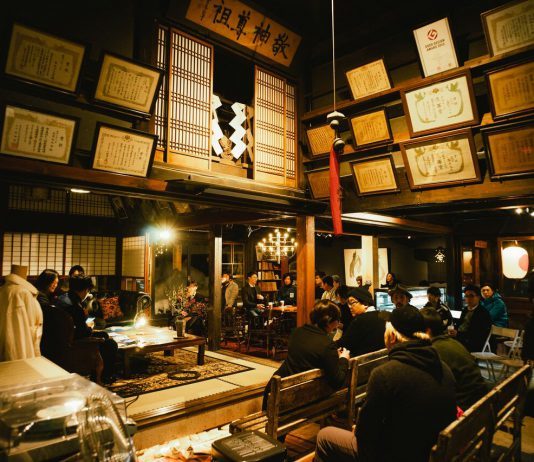
Between June 12th and 15th, the Tech Culture Festival takes place in the Hague. This event directly addresses issues relating to the transformative power of the creative Industries, digital media and citizen/stakeholder engagement.
Over the course of 4 days you can explore an extensive programme with labs, summits, a festival night, movies, meetups, and a kids programme in the centre of The Hague.
The day program includes approximately 30 different labs spread out over 3 days and more than 15 locations in The Hague. Topics range from the future of food, biohacking, and circular cities to tech to human rights and extreme space design.
During the festival night, on June 15th, you can join for an eclectic program which includes more than 30 sessions hosted by artists, scientists, authors, designers, engineers, and many others.
At a Border Sessions Lab you can dive into a specific topic or theme together with a diverse group of around 30 – 50 people, such as designers, hackers, students, entrepreneurs, artists, innovation managers, activists, citizens, and scientists.
On of the labs is Collaborative Builders of Regional Innovation on June 14th. This lab is devoted to the societal challenges that are collaboratively resolved in Europe and Japan. The premise of the lab is that ‘creative blocks’ – small innovation units in cities, regions, and organizations where creative people already collaborate – can be connected in ways which enhance their potential societal impact. Please check the website for more info on the lab.
It is an opportunity to tinker, think, and build together towards a clear mission and goal. Join one of the labs, meet new people and find common ground to innovate and kickstart future endeavours.
Get your tickets now to not miss out on this amazing opportunity!
The post June 12-15th, The Hague: Tech Culture Festival, Borders Sessions appeared first on Seats2meet.
May 29, 2019
FLOOR Academy: een plek waar jongeren met een beperking hun potentie ontdekken en tonen
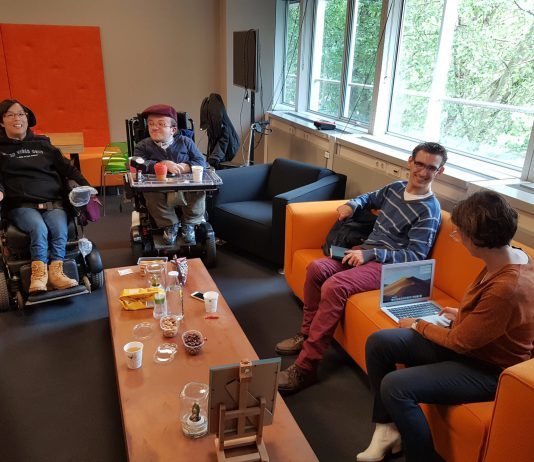
Hallo, ik ben FLOOR. Wij zijn FLOOR. FLOOR jongerencoaching.
FLOOR jongerencoaching, een project dat is ontstaan uit het succesvolle initiatief NSGK jongerencoaching. Enerzijds geïnspireerd in naamgeving door stand up comedian Floor van der Wal en anderzijds als uitnodiging aan jongeren met een beperking of ziekte om hun plek in de maatschappij in te nemen. Ofwel; “The floor is yours.” We zijn nu ongeveer een jaar actief met dit project. We overleggen bij Seats2Meet over ons nieuwe plan; de FLOOR Academy.
Vrijwillige coaches
We werken met vrijwillige coaches, door heel Nederland. Zij helpen jongeren aan de hand van de methode Persoonlijke Toekomstplanning om een leven te creëren dat bij hen past. De jongeren die gecoacht worden willen dingen, maar weten niet goed hoe ze daar kunnen komen. Of ze weten nog niet helemaal wat ze willen. Dit gaat over meer dan werk of studie. Bijvoorbeeld ook over meer vrienden maken, zelfstandig wonen, een relatie, hobby’s. Onze coaches helpen de jongeren dat zelf te gaan ontdekken en te organiseren met behulp van hun netwerk. Want, iedereen heeft een netwerk. We gaan er-van-uit dat ze zelf het antwoord hebben. De basis hiervan is je eigen gebruiksaanwijzing leren kennen en daarover communiceren. Uitgaan van wie jij BENT en wat jij KUNT. Wat je talenten zijn, maar ook wat jij nodig hebt om goed te functioneren. Eigenlijk voor iedereen handig om te weten, het zou wellicht een hoop burn-outs schelen.
“FLOOR jongerencoaching haalt mij uit mijn eigen denkcirkels, daagt mij op een goede manier uit en brengt mij zo uit mijn comfortzone, waardoor ik kan groeien. Dit is essentieel voor mijn eigen ontwikkeling. Ik krijg nieuwe ideeën en impulsen en voel mogelijkheden, waar eerder beperkingen leken te zijn. Mooi als naast individuele coaching ook bijeenkomsten zijn die uitdagen.”- Coachee Vincent
We hebben al tientallen succesvolle trajecten afgerond en onze FLOOR jongeren inspireren weer hun omgeving. Daarnaast zijn we actief op scholen.
Groot dromen
Jongeren met een beperking durven vaak niet groot te dromen, zo is onze ervaring. Dat komt omdat we als maatschappij uit gaan van het principe ‘iemand met een beperking=zorg’ en minder vanuit wie de persoon is, los van de beperking of ziekte en wat deze persoon kan. Bij FLOOR denken we in mogelijkheden en talenten van de jongere zelf om zichzelf in hun kracht te zetten.
Daarom dromen ook wij groot. Wij dromen zo groot, dat we een FLOOR academy voor ons zien. Een online en offline plek waar verbinding ontstaat. Want er zijn al genoeg eilandjes. Genoeg initiatieven voor en door deze doelgroep, ieder weer met een eigen achterban. Ons plan is deze initiatieven zoveel mogelijk te verbinden en samen te werken. En daarom vergaderen we af en toe bij Seets2meet. Wij, projectleider Gigi Dingler, Tim Kroesbergen, Maarten Dik, Liann Daalder, Britt Gerhardt. Jongeren die zelf allemaal een beperking hebben maar zich niet laten beperken. Die dingen hebben bereikt en vastbesloten zijn door te geven aan andere jongeren om ook groots te dromen en stappen te zetten richting die droom.
FLOOR academy
Webinars, workshops over Toekomstplanning en persoonlijk leiderschap, het geven van trainingen en andere jongeren opleiden. Fysiek en online. We willen enerzijds verbinden en anderzijds verbreden. Dat gaat de insteek zijn. DreamSupport, onze partner hierin, gaat het programma ontwikkelen om de kaders hiervoor te scheppen. Wij organiseren het. Een kernteam van ongeveer 10 jongeren (die elkaar allemaal kunnen vervangen) zal zelf bepalen hoe ze dit gaan organiseren en wat de taakverdeling gaat zijn.
Anderzijds willen we een online community oprichten, voor oud-coachees om aan de bak te blijven gaan na het traject. Maar ook voor jongeren die (nog) geen coachtraject doen, omdat we merken dat jongeren tegenwoordig vooral inspiratie ‘shoppen’ her en der, omdat een coachtraject veel tijd en aandacht kan vragen. Dan is de academy een laagdrempelige manier om kennis te maken met FLOOR.
Uiteindelijk gaat de academy open zijn voor alle jongeren, ook zonder beperking. We willen een fysieke en online plek creëren, een plek van verbinding en inspiratie. Met positieve rolmodellen in het kernteam. Natuurlijk zal er ondersteuning zijn de eerste tijd, maar uiteindelijk zal het kernteam zelfstandig de academy gaan runnen.
Een groot plan. Een spannend plan. We zijn heel enthousiast en ook de fondsen lijken vooralsnog geïnteresseerd in dit plan. Langzaam worden de plannen meer concreet. Dit krijgt voor een groot deel vorm bij Seats2Meet Utrecht CS. We zijn dankbaar ons op deze plek te kunnen verbinden, zodat wij weer anderen kunnen gaan verbinden.
Dus, mocht je ons zien bij Seats2Meet of contact willen zoeken omdat jij ideeën hebt voor onze Academy, of op andere wijze kunt helpen; benader ons dan vooral. Vinden we leuk.
En volg onze Academy plannen via:
contact@floorjongerencoaching.nl
Voor communicatiedoeleinden: britt@floorjongerencoaching.nl
Auteur: Britt Gerhardt
communicatie coördinator FLOOR jongerencoaching en vrijwillig coach
The post FLOOR Academy: een plek waar jongeren met een beperking hun potentie ontdekken en tonen appeared first on Seats2meet.



